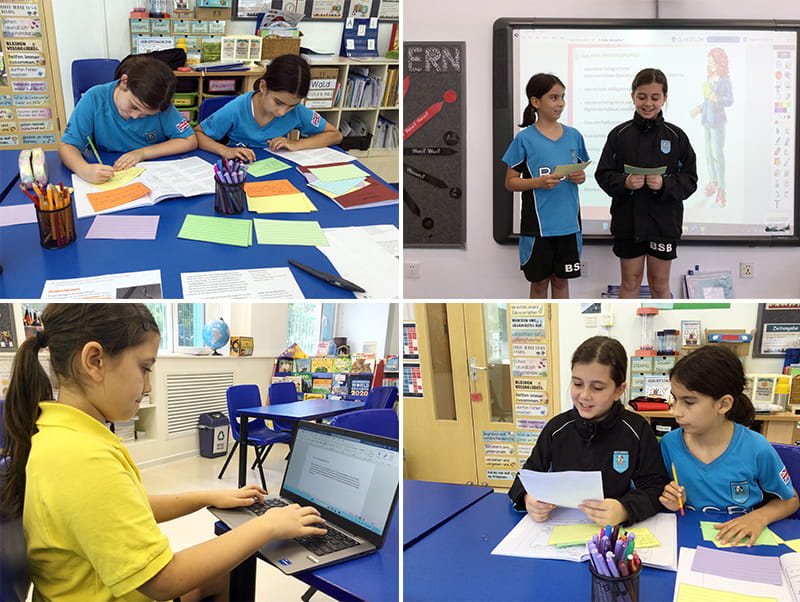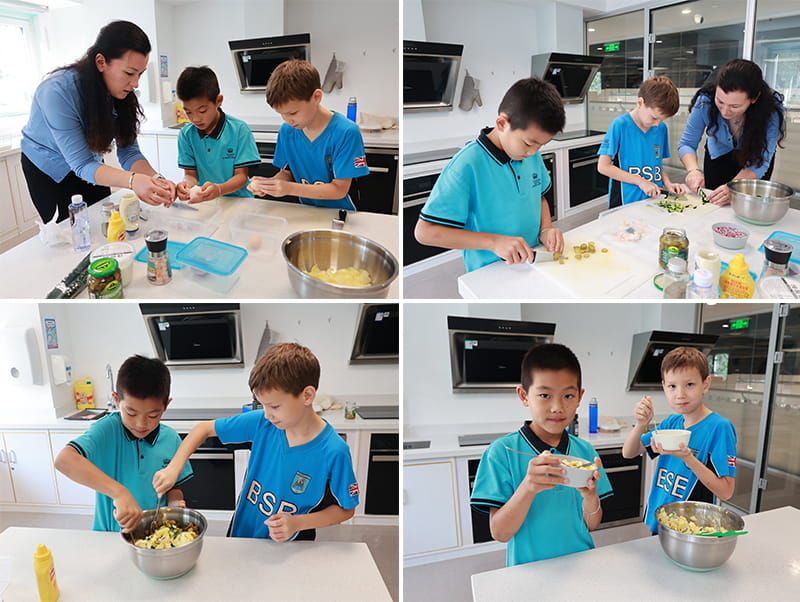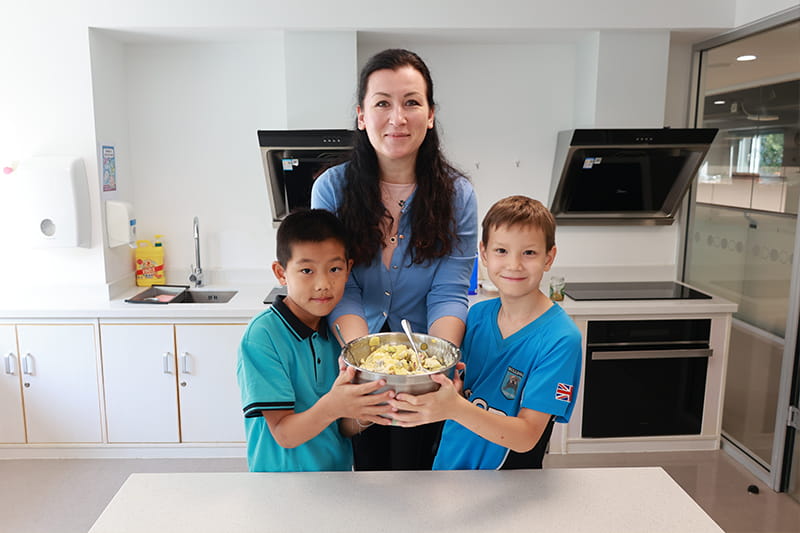The term ‘interactive learning’ is becoming more common in the educational world and there are many reasons why – for one, interactive learning is learning that gives students the experience to learn with all their senses as it is hands-on learning. Not only does it instruct them on a theoretical level, but also to practise the knowledge they are absorbing.

I find interactive learning very beneficial. This approach goes beyond memorization, allowing the students to actively participate in their education. It has engaging content, and it offers flexible learning. The children are naturally curious, they want to learn as much as they can about the world around them. When children participate in interactive learning, they engage multiple senses at once. They aren’t just reading or listening, they are also watching, singing, making, participating, engaging and experiencing.
In the German lessons at BSB, Sanlitun we use tailored language games, we utilise Legekreise to introduce and practise new vocabulary. In the German phonics learning, children enjoy the letter stories, where they can craft their own tales using the letter box (Buchstabenkoffer).


We also enjoy hands-on activities, like cooking their favorite recipe, learning the parts of the speech through a fairytale, or encouraging the children to write poems or stories based on the books we have read.

This creative environment fosters curiosity and turns every lesson into an exciting adventure.
By Valeria Hammami
Head of German










